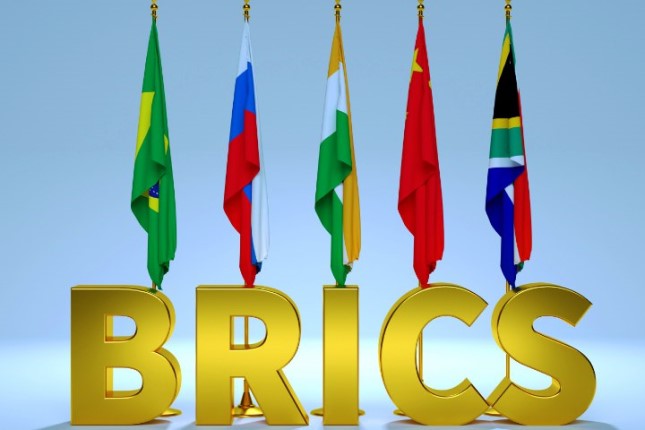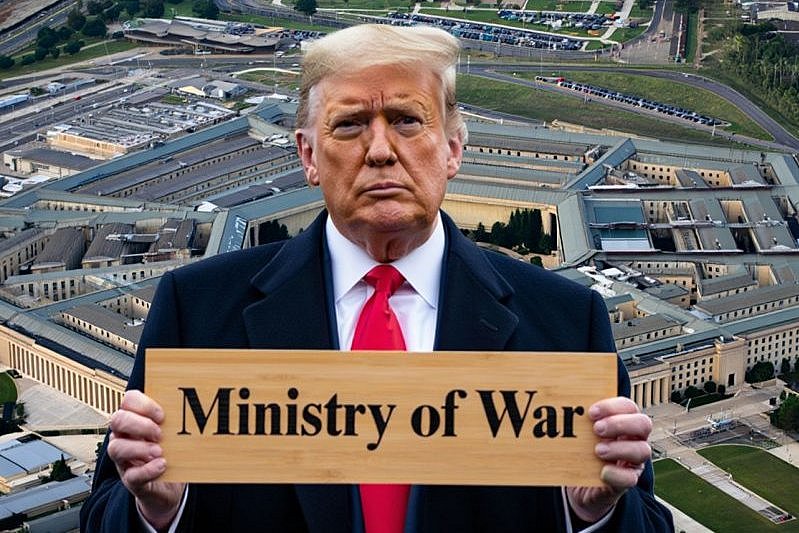It seems the US desires to portray China-involved international mechanisms and multilateral cooperation organizations as a geopolitical bloc, because only by doing so can the US create legitimacy for its own push for bloc confrontation.
Wang Yi, director of the Office of the Foreign Affairs Commission of the Communist Party of China Central Committee, and Indian External Affairs Minister Subrahmanyam Jaishankar agreed to "start the BRICS expansion process" in Jakarta last week. South Africa's representative to BRICS Ambassador Anil Sooklal noted in May that more than 30 countries have formally and informally applied to join the alliance, including Iran, Cuba, Indonesia, Argentina and many other important regional powers.
The expansion of the BRICS is a natural result. These countries come together with a common aspiration, that is, to engage in mutually beneficial cooperation based on sovereign equality. Faced with the current complex international situation, especially intensified bloc confrontation, these countries have subjectively chosen not to take sides. As a result of the irresistible trend and the common pursuit, cooperation and cohesion among the BRICS countries have become stronger, and this organization has become more and more attractive to other countries.
Sun Chenghao, an assistant researcher at the Center for International Security and Strategy at Tsinghua University, said countries want to join the BRICS because of the mechanism and platform. The BRICS is more of an organization that meets the development needs of individual countries. Amid the global economic downturn, the post-pandemic recovery and the Ukrainian crisis, all countries have the right to pursue their own development and demands and also have the right to join different international mechanisms out of their own choice. Moreover, since this platform has achieved great success over the years, it is quite reasonable that these countries choose to join BRICS.
However, VOA also said in the article that with the expansion, BRICS will have more impact in the international community as a new geopolitical force. In particular, it will pose increasing challenges to the US-led international order, claimed the article.
This not only demonstrates the essential logic of the US in terms of bloc confrontation, but also reflects the trend that the US hegemony is opposed by more and more countries. There are various kinds of multilateral organizations in the world, but in the eyes of the US, as long as a new organization is formed, it is either an enemy or a friend, and there is no need to join an organization if it is not for confrontation.
Indeed, the countries that wish to join BRICS are saying no to the bloc politics led by the US. Their purpose is not to be anti-American or to engage in confrontation against any country, but to seek sovereign equality and genuine cooperation, so they are not meant to choose the US-led bloc characterized by confrontation.
According to the experts interviewed by VOA, China's proposal to expand the BRICS should have the consideration of competing with the US and advancing its globalization process. And China should be prevented from turning the BRICS into a home base for Chinese followers.
Such judgments both stigmatizes China's intentions and underestimate the intelligence and autonomy of the BRICS member countries. No BRICS participant is willing to put its sovereignty under the leadership of other countries, much less put its own country under the domination of other countries.
"No US ally dares to say that it is equal to the US, but within the BRICS group, any sovereign country can say with a straight face that it is equal to all other countries in the group, which determines that there is no leader or led in the BRICS group, let alone becoming a tool of a certain country. This is completely different from the US, and it is precisely the charm of BRICS," Yang Xiyu, a renowned expert on international issues, told the Global Times.
These countries don't feel that joining the BRICS equates to a confrontation with the US. This suggests that China doesn't intend to draw these countries into the China-US tensions. BRICS is an open and inclusive organization, and if the US is willing to cooperate with BRICS, it may be also accepted, said Sun.
The practice and expansion of BRICS itself represent the development of multilateral and equitable international relations, which is also a rejection of the existing irrational international order and power structure. This move will be a historic contribution to the formation of a new international order, though it requires more time.
Source: The Global Times.
































